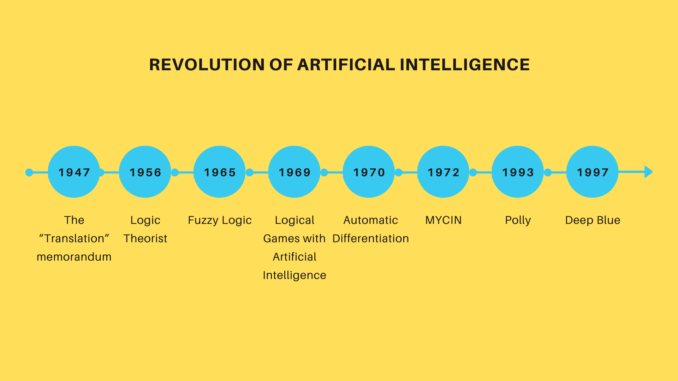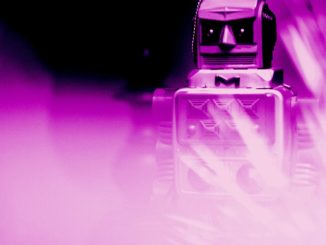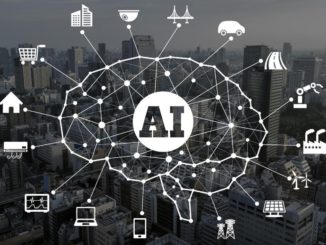
During the late ’80s and early ’90s, I had the opportunity to work with expert systems in real-time production environments. I found artificial intelligence, or AI, to be thoroughly intriguing. I even went so far as to write an expert system package, under Microsoft Windows, called WindExS. However, as I continued my work, and expanded into other areas of knowledge management and, eventually, remote viewing, I began to find some unusual inconsistencies in the AI world and the desires to create “truly intelligent” and “thinking” machines.
One of the issues that people usually claim as a requirement of true intelligence is that “one must have a soul.” These ideas and dabbling prompted me to write a short screenplay entitled “Sylvie,” which was the story of an “emotionally intelligent” system. That small inkling of creativity still did not allow me to delve as deeply into the topic as I had wanted. However, it did bring up the question: “what is a soul?”
— What is AI? —
AI is the science and engineering of making machines intelligent, especially through the creation of intelligent software. It is similar to the task of using computers to understand human intelligence, but AI does not have to confine itself to methods that are biologically observable. Intelligence is the computational part of the ability to define a plan and achieve goals. Different types and levels of intelligence occur in people, animals, and some machines. However, the ultimate premise behind creating an intelligent machine is the ability to think creatively, solve problems using abstract information, and devise new solutions.
— The Biological Parallel Computer —
Consider the vast amount of information that we acquire and process every day. It is difficult to imagine that so much information and activity could be stored in such a small amount of tissue and fluid. Scientists have been theorizing that, indeed, the mind is not as much of a storage device as it is a communications device to some larger “knowledge base.” The mind appears to be a way to pre-process data for storage and a way to analyze data for use while all the time maintaining a connection for data storage and acquisition with this knowledge base.
This knowledge base surrounds us with information and intelligence. Everything that every creature in the Universe knows, and will ever know, is stored and made available for us by simply asking for it. However, accessing it requires a connection, a field, which connects us all together in a large “bio-circuit.” It can be seen as a “biological parallel computing environment.” The information presented by this bio-circuit consists of a limitless and accessible Universal source of knowledge.
— Why be creative? —
I remember my days in school where I was taught that, indeed, daydreaming and excessive creativity could destroy your life. However, the important thing that I learned along the way is that, without creativity, there can be no progress. Creativity is a way to expand one’s consciousness by taking abstract ideas and turning them into a new reality. It is a way to take what you know as an absolute, and stretch it into the unknown. Each stretch takes you further and expands your absolutes along the way.
Without creativity, you would do the same things that you’ve always done in life without ever moving forward or backward. Consider it as being “caught in a rut.” You can’t leave the rut because you can’t figure out how to get out of it. When you think creatively, you’re taking things that you know, applying it to things that you don’t, and devising a solution to achieve a goal.
To access the vast resources of creativity, the mind reaches into the bio-circuit and extracts bits and pieces of information that it can use to create intelligent solutions. By developing your creative abilities, you are opening that circuit to more knowledge, a greater intellect, and a broader understanding of life.
— What is the soul anyway? —
A discussion of creativity once again brings up the question of: “what is the soul?” After some thought and evaluation, I would have to say that the soul is the link, the transceiver, between our physical world and the bio-circuit. It is the living essence of everything within each of us.
By closing ourselves off into our own worlds and hiding our souls under the muck and mire of challenges, we close off our connection to the bio-circuit. Our soul essentially dies and we become a stand-alone computer with only the knowledge we have saved as our guide. However, by working to bring your soul forward and using your creativity in everything you do, you can acquire knowledge from every part of the Universe.
— True AI —
Scientists have tried to mimic the way the human brain functions. Storage, processing, intelligence, and self-learning are all components of AI. However, what if the basic premise of how the brain functions was — wrong? Indeed, it provides control over our bodies and accepts stimuli; however, what if the ideas of processing, intelligence, storage, and self-learning all truly based on the connection of our minds with the bio-circuit. In this way, to create a mimic of the human intellect, we must understand how we interact with each other through the bio-circuit.
— What’s next? —
What an unusual foray into strange territory. However, this has been a general concept that has been eating at me for years. It wasn’t until I began remote viewing that I was able to see and apply the ideas of Universal intelligence to the ideas of artificial intelligence. I am not going to say that, in this context, a machine cannot have a soul, as stranger things have happened. However, I will say that the true nature of intelligence will not be realized until we understand and believe the true purpose and function of the soul.
Proudly WWW.PONIREVO.COM



